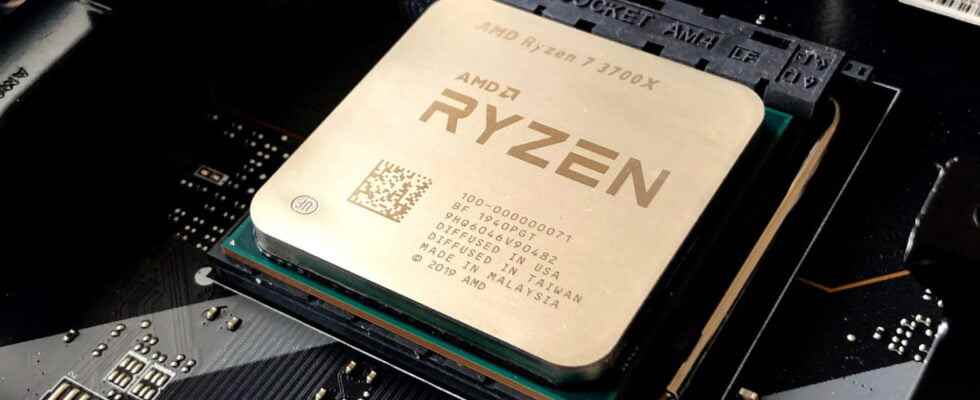Microsoft and AMD have jointly released fixes to correct degraded performance issues in Windows 11. This is great news for users of Ryzen and other AMD chips.
[Mis à jour vendredi 22 octobre à 15 h 00] PC users equipped with AMD processors can breathe a sigh of relief: they will finally be able to upgrade to Windows 11 without seeing their PC’s performance drop sharply. Indeed, AMD and Microsoft have just published patches to correct the two problems that penalized AMD chips in the first version of the new operating system. In fact, just a few days after the release of Windows 11, problems were reported and officially recognized by the two companies: Windows 11 did not mix well with PCs equipped with AMD processors …
AMD chip performance reduced with Windows 11
Admittedly, this was not a fundamental incompatibility, as Microsoft’s new operating system works with the Ryzen, Epyc, and other Athlons featured on the aptitude list duly validated by Microsoft in early summer 2021. But, as AMD explained on his site from October 7, their performance fell with the first final version of Windows 11. Not in scandalous proportions: the chip designer evoked an average reduction of 3 to 5%, which can reach 10 to 15% in certain very serious situations. particular. Following its investigations, AMD identified two causes: a level 3 (L3) cache management problem which multiplied the latency by 3, and a problem in the CPPC2 (Collaborative Power and Performance Control 2) system of the UEFI – the modern equivalent of BIOS – for the allocation of threads to the fastest cores. According to AMD, these defects affected more chips with eight or more cores, with a thermal envelope (TDP) greater than 65 watts, in other words, the rather high-end processors in its catalog, which are supposed to offer the best performance …
Admittedly, the drop in performance caused by these defects was minimal: not enough to cause real discomfort in daily use, and it is more than likely that few users have noticed, apart from gamers and experts in tests (benchmarks). But this kind of problem was a task just as Windows 11 was rolling out of the boxes. It seems curious that after months of testing, including on a large scale, through the Windows Insider program, these issues have not at least been detected, by both Microsoft and AMD.
AMD and Microsoft release fixes for Windows 11
As soon as the problems were identified, AMD and Microsoft set to work to resolve them. While advising users of PCs equipped with AMD processors to wait before upgrading to Windows 11. The two companies had committed to providing fixes quickly, before the end of October. And they kept their promises: Microsoft has just released a fix for the L3 cache management issue as an update for Windows 11: KB5006746 dated October 21, 2021. In practice, all you have to do is open Windows Update, check for available updates and download and install KB5006746, which also makes several fixes to make Windows 11 more stable and efficient. In principle, the latency of the L3 cache should return to normal values, around 10 ns.
For its part, AMD corrected the management management problem in the scheduling of processor cores by publishing an update of its drivers. AMD Chipset Driver, which upgrade to version 3.10.08.506. This set manages the main components of the PC, in particular through the AMD Processor Power Management which controls the processor cores. In practice, you have to download the drivers directly from AMD website. Then just open the recovered file (amd_chipset_software_3.10.08.506.exe), wait for the modules to be extracted and the PC to analyze, then click on the button To install. Early user feedback indicates that these two fixes do seem to resolve the issues mentioned. Phew!

